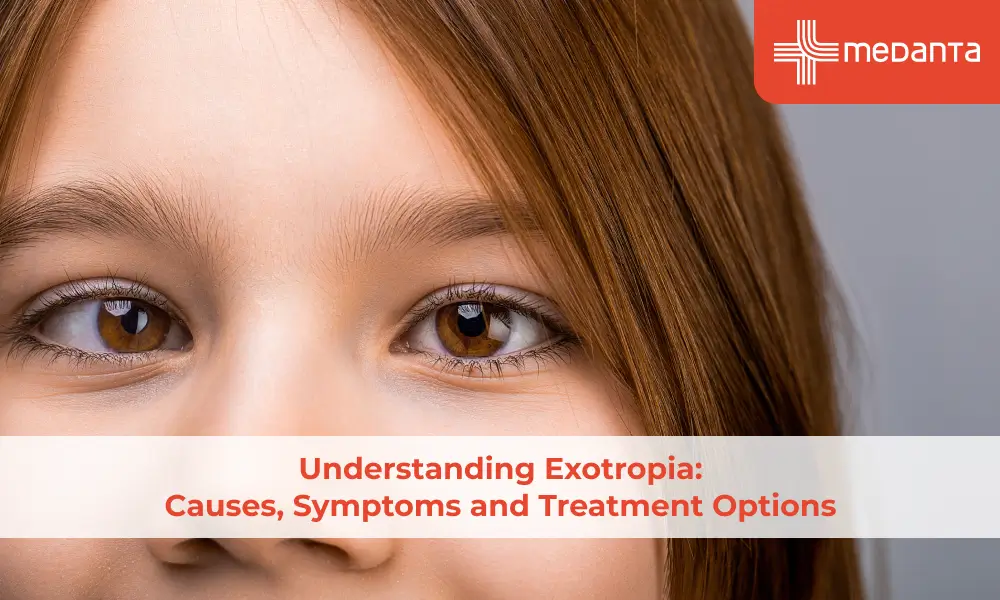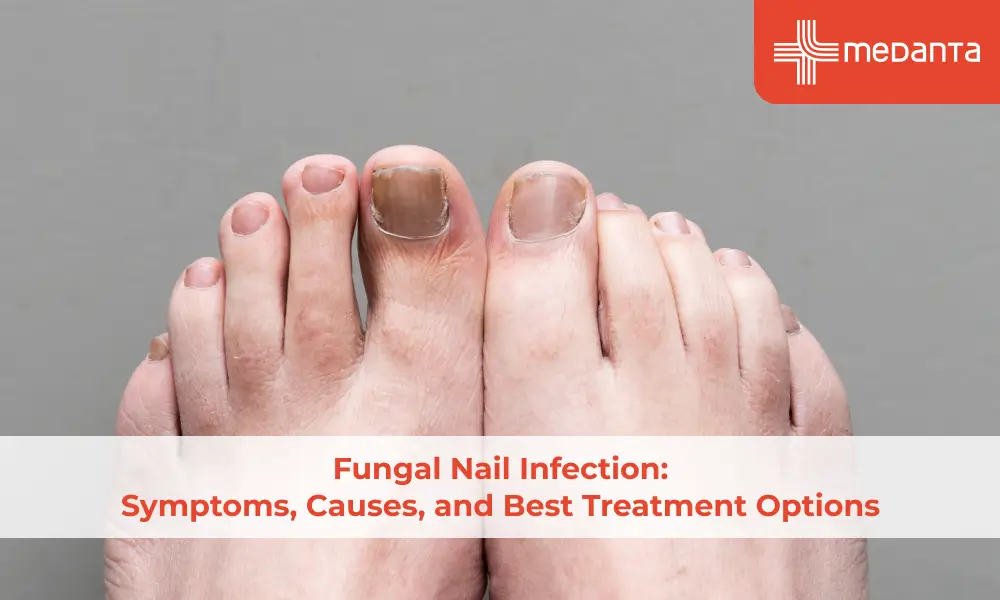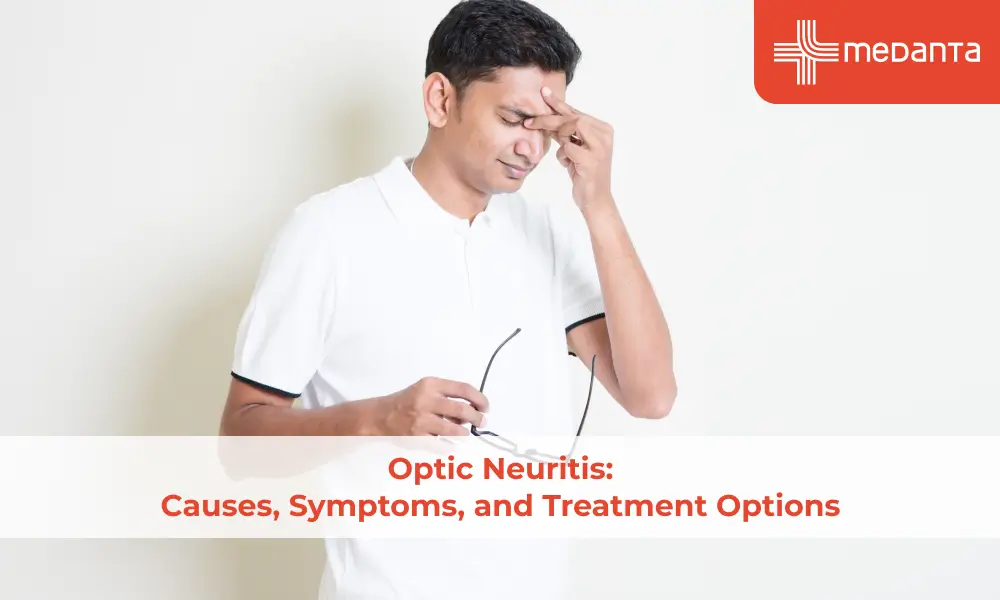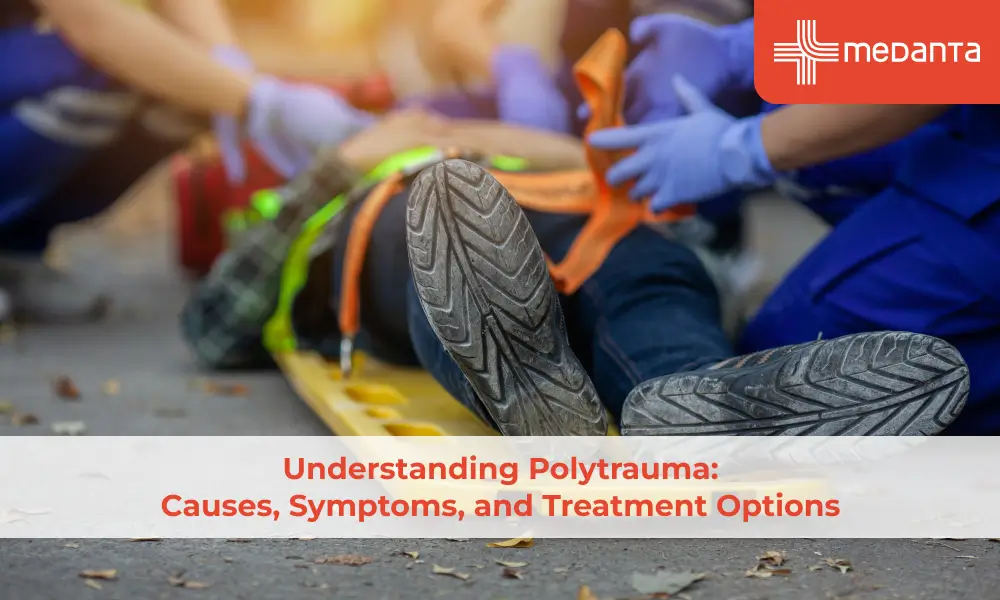Taking Medicine Empty Stomach Could Be Fatal
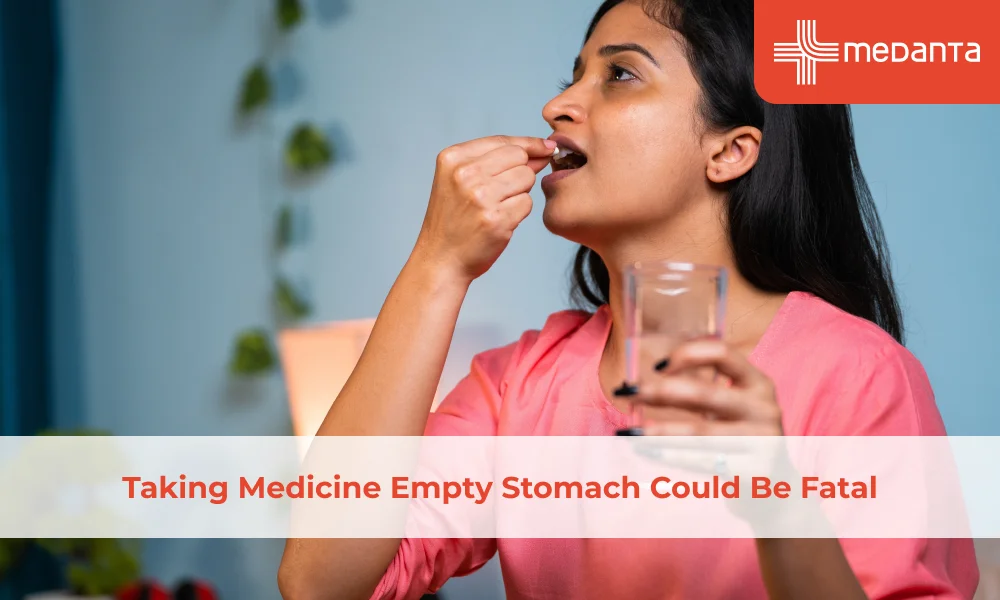
TABLE OF CONTENTS
“Take this pill with food, this on an empty stomach and this after meal..”
Haven’t we all heard such instructions at some point?
While such instructions can seem tiresome, doctors give such advice for very specific reasons. Read on to learn about the different ways drugs interact with our bodies and learn if there is any truth in your doctors seemingly dire warnings.
Drug Interactions Decoded
The consumption of certain foods and liquids can trigger a host of physiological changes in your body. Your system will identify and analyse this ‘foreign material’ and prepare evasive actions acting the same. The blood to the gut increases, acids are released in the form of bile and gut prepares itself by changing its acidity. Our medicines also head towards this same gastric laboratory and each one interacts differently.
Therefore at the core of it, the main reason for choosing Before-During-After meals is in anticipation of how these chemicals will interact with the digestive system as adverse drug-food interactions can either help or deter the absorption of the chemicals in your medicine.
Drug Interactions on an Empty Stomach
When a medicine is prescribed on an empty stomach, it is done to ensure the most effective absorption. The changes in the gut with food restrict and therefore affect the effectiveness of these particular medicines. In some cases, elements of food like iron or calcium might bind to chemical structures in medicine.
The types of medicines usually recommended being taken on empty gut include certain types of antibiotics, HIV medicines, asthma medicines and medications for osteoporosis.
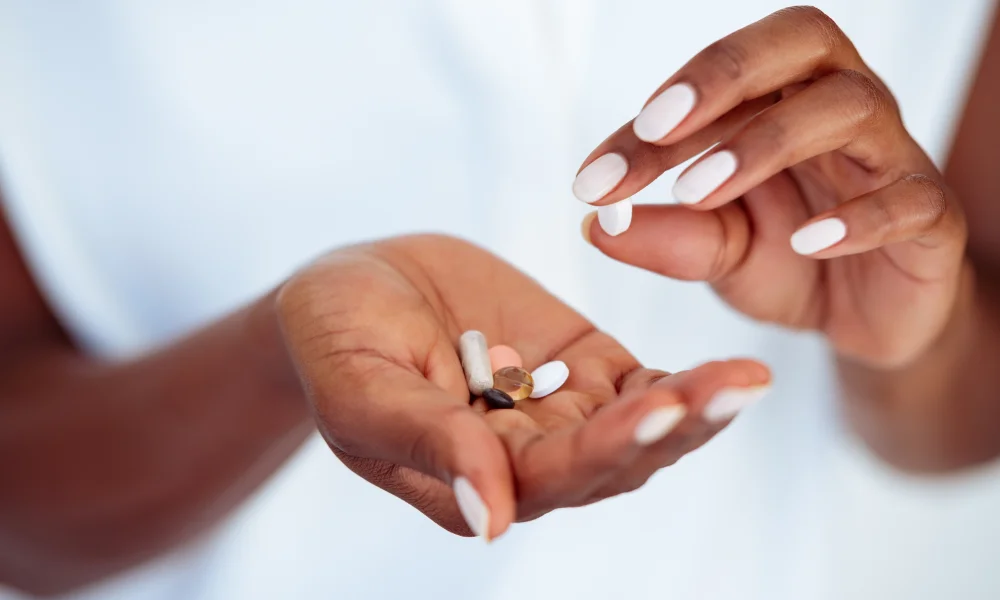
Drug Interactions With a Meal (or Snack)
Some medicines have side effects like stomach irritation, indigestion, ulcers or inflammation. Having them with your meal will reduce these unpleasant effects. It need not be a full meal - light snacks like biscuits or a sandwich will be adequate.
In the case of oral medicines for diabetes, it is done to avoid very low blood sugar (hypoglycaemia). Enzyme supplements for chronic pancreatitis should also be taken with food to help the body process the meal
Antacids and non-steroid anti-inflammatory drugs (NSAIDs) are usually recommended to be had with a meal or snack. NSAIDs inhibit the production of ‘prostaglandins’, chemicals that promote inflammation, pain and fever but also protect the stomach lining from the gut acid. A group of diabetes medicines called ‘Sulfonylureas’ are also advised to be taken with a meal, to reduce the risk of low blood sugar.
Drug Interactions After a Meal
Also called ‘post-prandial’ or the period after you have a meal. The consumption of certain medications post meals can help reduce their harsh gastric side effects. It also ensures that the medicines are not washed away and absorbed properly in the bloodstream, as in the case of antifungal gels or liquid medicines for oral thrush or mouth ulcers. Certain antibiotics and HIV medicines fall under this category.

